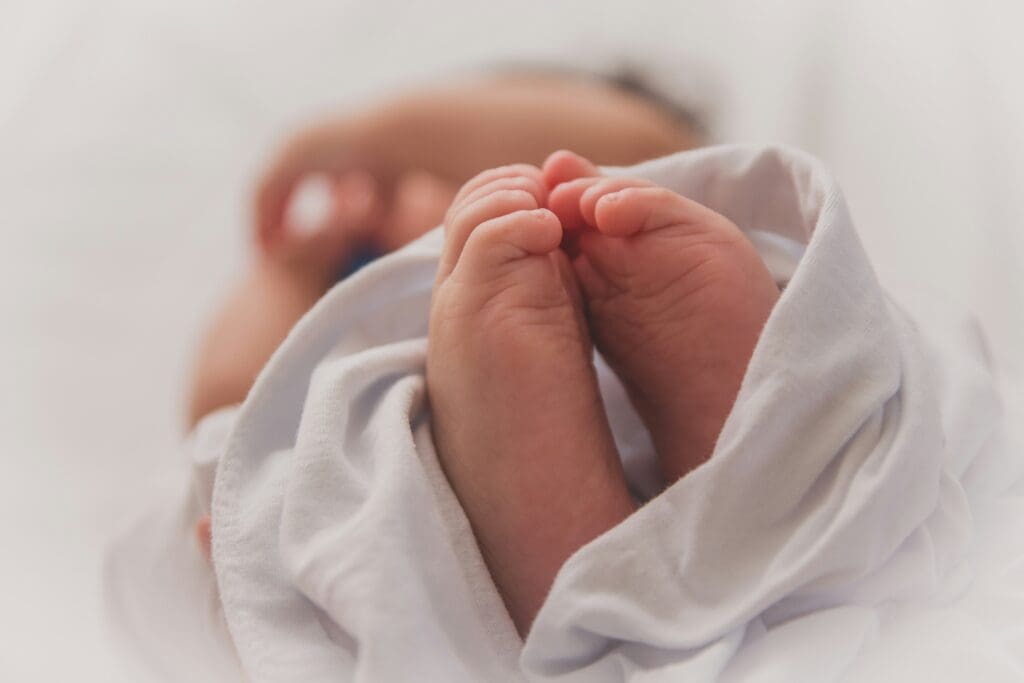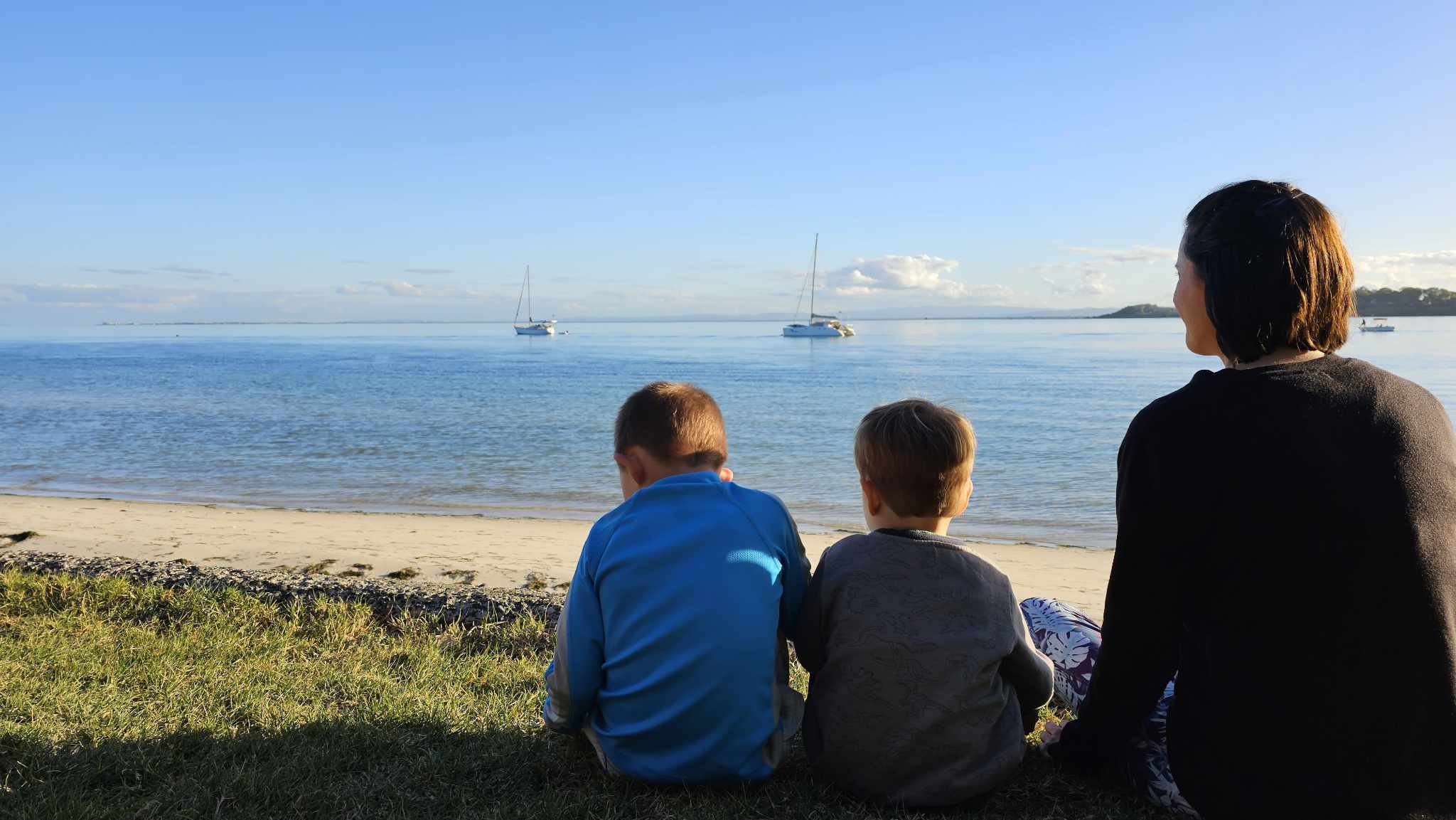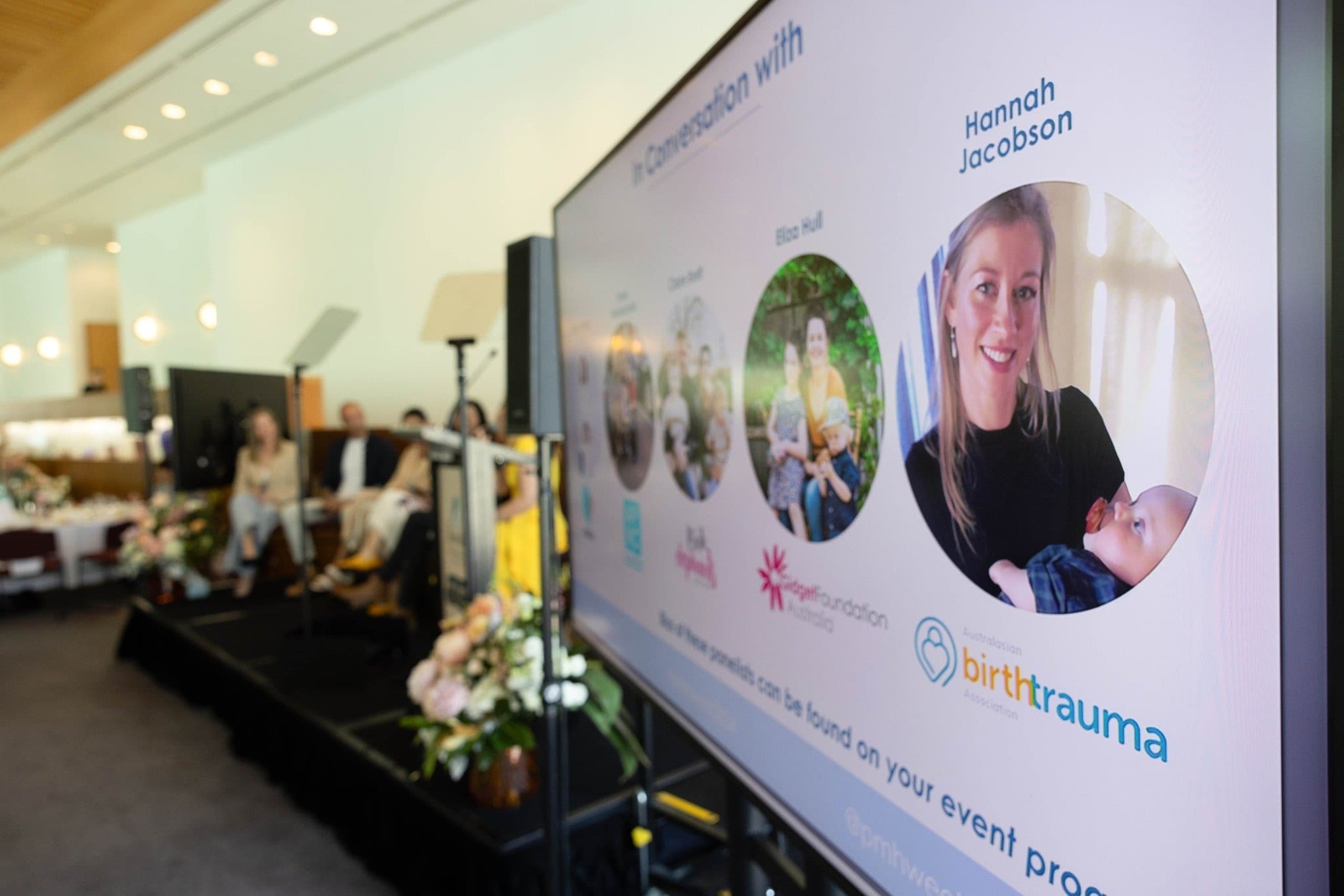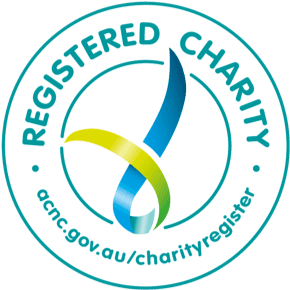Content warning: This birth story discusses trauma. Topics discussed include IVF, prolapse, tearing, levator avulsion, failed pain relief, and postpartum haemorrhage. If you are seeking support for your birth trauma, we have downloadable resources here or you can join one of our free Peer2Peer Support programs.
My name is Monique and my son Levi is 11 months, fast approaching his first birthday! I’ve been watching, smiling and encouraging other mums to tell me their plans for extravagant first birthday parties. When they ask me what we are doing, “Oh, I think I’ve done enough these past 12 months, it’s all up to Mitch (husband) now!” Really, the reason behind this is that I am raw, afraid, sad, angry, and in a “glass case of emotion” for the anniversary of the best and worst day of our lives, and the first day of my new life and body.
When I became pregnant, it was our last try at natural conception before we were due to begin IVF. After trying for 1.5 years, I had a laparoscopy and found I had stage 1 endometriosis (surprising, as I had none of the typical symptoms). After having most of it removed, we were given three months – so it really felt like the universe was giving us this gift.
Fast forward to the 16th of June, 2022. After a failed epidural and three hours of writhing in pain before another anaesthesiologist inserted it again, I was ready to push. I had practised “breathing” my baby out, but the midwife wanted none of that. “Hold your breath and push!” she demanded, again and again, scolding me as soon as I released my breath. I was exhausted, “I’m just going to give you an episiotomy to help baby come out.” “Do whatever you need to do, just get my baby out!”
I remember this moment so clearly, I relived it so many times. If only I knew more, if only I told them to stop, if only I told that midwife to shut up and leave the room or tell them to roll me on my side or put me in another position, maybe none of this would have happened. However, you can’t move on when you’re living in what-ifs.
Forceps were used and the damage was done: 3c tear, partial levator avulsion (pelvic floor muscle rippled off the bone on my right side – this detail wasn’t confirmed until about three months postpartum) and a massive postpartum haemorrhage of 3.3 litres requiring 5 units of blood transferred and ventilation.
My 4.51kg (9.9 pounds) son was placed on my chest, Mitch got to cut the cord when it stopped pulsating (the only thing on my birth plan that happened), and we had a minute of euphoria. However, I began to get very cold and swing in and out of awareness. I knew they were stitching me up, but I asked, “Are you going to be much longer? I’m so cold…” Levi was thrust into Mitch’s arms, he was placed in a corner, asked to sign some documents and I was rushed to theatre. I don’t remember much, but there is a vivid memory that used to (and still does during a trigger) torment me during flashbacks. I was looking up at the lights flashing overhead. You know, in movies, or TV shows, where they are wheeling the patient through emergency, and you see the lights flashing overhead? That’s what I saw. My body was numb, nurses were screaming at me: “Stay with me, Monique!” “Monique, can you hear me?” They looked frightened, and I realised I was going to die. “At least I got to meet my son and give him his name, Mitch is going to be a great dad, they’ll be OK without me,” I thought. I was in theatre and the anaesthetist grabbed my hand, “Hi Monique, my name is …, we’re going to save you.”
When I awoke it was the next day and I was in ICU. Mitch came down in the early afternoon and we just cried and cried. A short time later, they brought down Levi and we cried some more. We got some of those ‘first photos’ together. The next day I was released to the maternity ward but I was unable to move by myself. That first week was survival, I numbed everything, Mitch was broken, we were not only coming to terms with becoming parents, but trying to process what had happened. I couldn’t comprehend what had happened and put my entire focus on trying to feed my baby.
My OBGYN put me in contact with a birth trauma psychologist immediately and I spoke with him when I was still in ICU. It takes me a while to trust, so I soon went back to my regular psychologist that I had built a trusting relationship with over the years. I had begun seeing her during my pregnancy again as I have high-functioning anxiety with episodes of depression from time to time, and I wanted to be prepared in case I developed PND or PNA. She saw me weekly for months and has been my saving grace through these past 12 months.
At three months postpartum I was referred by my women’s health physio (who I was seeing throughout pregnancy) for an Obstetric Anal Sphincter Injuries (OASIs) scan. I spoke with their resident women’s health physio, and it’s important to say she was the most trauma-informed consultant I have worked with, and yet, the delivery was still lacking. This, I came to learn, is quite common in the health sphere. She gave me space and for the first time I told my birth story, uninterrupted, and admitted that I felt I was going to die. She validated my feelings and showed the compassion which I really needed in that moment. Unfortunately, that took up a lot of our dedicated hour. She quickly assessed my pelvic floor and as I was getting dressed she came back in and apologised that she had to run off to a meeting, but she told the OASIs surgeon my details – oh, and just quickly, that my pelvic floor is very, very weak, high chance of partial (possible full) avulsion. I remember the cold wave that rushed over my neck and chest as she left the room. What happened to me? Does this mean I’m going to be broken forever?
I went in for the OASIs check and my husband came in to hear the results. At three months pp, I was having great difficulty controlling my bowel movements, so wasn’t leaving the house, except for walks for mental health. At the time, I could only manage a 20min slow walk. I sat in that appointment reeling, not really knowing how to process, whilst my husband listened on. “Do you have any questions?” I didn’t really know what I should ask, except, “Am I going to get better?” I was told, “You will never be the same as you were before, no, but if you work really hard, you can find a new normal – you will know by about 18 months postpartum.” To me, that number and length of time seemed so abstract. I was living day-by-day, what could a future in 18 months’ time look like?
It was at this time that the darkness set in and wouldn’t leave for another six-or-so months. It’s hard to make sense of this time as time becomes blurred. My trauma is not only mental, but closely tied to my body as I was struggling to overcome the concept that I was now “broken.” When I was diagnosed with prolapse (cystocele) I was told to not stand for more than 10 mins at a time, never pick up and hold my baby, and be on bed rest. I laid in a dark room with my baby during nap times for a month until finally I accepted an ill-fitted pessary to try and ‘escape’. Every step I took was painful, but this is my life now, I will always be in pain. I remember my physio telling me, “I don’t want to wash things over for you, I want to be real with you, these are the facts” when telling me my prognosis. All it did was solidify that I was broken.
I think it’s sometimes forgotten that when you are working with and supporting someone with trauma, you have to approach things a little differently. Sometimes, their mind may not be ready to hear the whole truth right now, or something that might seem so minor, such as, “OK, lay on your back now” or “There’s 2cm movement”. These statements can bring up such intense waves that someone living with trauma generally has to manage. So many times I carried on for the sake of my child, but I cried every day, I woke up in cold sweat from 3am and couldn’t go back to sleep. Every step I could feel my body failing me. I can never run again, I won’t be able to do martial arts again, I’m not even allowed to carry my baby when he just so desperately wanted a cuddle (I did it anyway, which led to ‘Well, this is your fault then!’ kind of responses). I thought it would have been easier if I just died in that bed, staring up at the lights flashing overhead.
I didn’t realise how much in a dark place I was, until talks began about admitting me to a Mother and Baby Unit. I was begging my therapist that I needed centralised care, as I couldn’t care for myself anymore. I attempted anti-depressants, but as they caused gastrointestinal issues that resulted in me having to wear adult nappies, it became more of a problem than help. My GP was well aware of my issues, and when I raised it with her, the response was, “Oh well, I warned you of that” – when I know full well she did not. My husband was trying his best, but we had bills to pay and he had to go to work. My parents came and lived with us for about two months. And with that, I let everything go – all the shoulds, wants, dreams, aspirations, expectations – most importantly, control.
I don’t think an experience like a traumatic birth or after-birth complications ever goes away entirely. You will always look at the world a little differently. Having a team around me helped me continue when I could no longer do it on my own, and having this team around during my pregnancy helped with a ‘ready to act’ scenario after birth. However, I do wish that providers would be more mindful of their language when speaking with people postpartum. It is important to handle these interactions with an awareness that a seemingly innocent statement could potentially trigger a downward spiral lasting for months.
We live in an uncertain and unpredictable world. We will all face challenges and some are utterly and completely out of our control. Rather than trying to control the outcome of ‘getting better’, my therapist helped me change my thought pattern to trust myself to listen to my body and accept with self-compassion when I need to rest, or when I can go on. That I am enough, just because I lived.
We are enough.
If you’d like to chat to someone about your birth experience and start getting support today, please reach out to one of our friendly Peer2Peer Support Team.











